
Breakdown is the sixth studio album by American singer-songwriter Melissa Etheridge, released by Island Records on October 5, 1999. A critical and commercial success, the album peaked at No. 12 on the Billboard 200, went Gold, and earned four Grammy Award nominations. A Limited-Edition version of the album was simultaneously released featuring three bonus tracks.

Yes I Am is the fourth studio album by American singer-songwriter Melissa Etheridge, released by Island Records on September 21, 1993. The pivotal album that gave Etheridge national and international recognition, the rock ballad "Come to My Window" was the first single released from the album, which peaked at No. 25 on the Billboard Hot 100, and its video featured the actress Juliette Lewis having a nervous breakdown. This single was quickly followed by "I'm the Only One", which became a major hit in the US and reached No. 8 on the Hot 100, and "If I Wanted To", which reached No. 16. By 2010, the album had sold over 4,348,000 copies in the United States alone, according to Nielsen SoundScan.
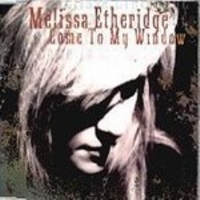
"Come to My Window" is a song by American singer-songwriter Melissa Etheridge, released in 1993 as the second single from her fourth studio album, Yes I Am (1993). This was the first song to become a hit after Etheridge publicly announced that she was a lesbian. With the driving force of gay rights, the song gained substantial airplay on radio stations, mostly through call-in requests.
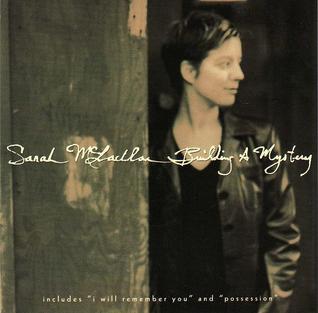
"Building a Mystery" is a song by Canadian singer-songwriter Sarah McLachlan from her fourth studio album, Surfacing (1997). At a live performance, Sarah explains the song as being "basically about the fact that we all... have insecurities to hide, and we often do that by putting on a facade." She also goes on to say that "unfortunately, if we just be who we are, that's usually the more attractive and beautiful thing".

"Angel" is a song by Canadian singer-songwriter Sarah McLachlan. The song first appeared on McLachlan's fourth studio album, Surfacing, in 1997 and was released as the album's fourth and final single in September 1998. The lyrics are about the death of musician Jonathan Melvoin (1961–1996) from a heroin overdose, as McLachlan explained on VH1 Storytellers. It is sometimes mistitled as "In the Arms of an Angel" or "Arms of the Angel".
"Last Kiss" is a song written by Wayne Cochran and first recorded by Cochran in 1961 for the Gala label. Cochran's version failed to do well on the charts. Cochran re-recorded his song for the King label in 1963. It was revived by J. Frank Wilson and the Cavaliers, who took it to number two on the Billboard Hot 100 charts. Wednesday, Pearl Jam, and several international artists also covered the song, with varying degrees of success.

"Angel of Mine" is a song by British R&B girl group Eternal from their first compilation album, Greatest Hits (1997). It was written by Rhett Lawrence and Travon Potts, produced by Lawrence, and released on 29 September 1997. The song became Eternal's 12th and final top-10 hit on the UK Singles Chart, peaking at number four. "Angel of Mine" was the ensemble's final single as a three-piece, as after its release, Kéllé Bryan left the group. In June 2019, "Angel of Mine" was ranked at number 91 on the Official Charts Company's "Top 100 Girl Band Singles of the Last 25 Years".
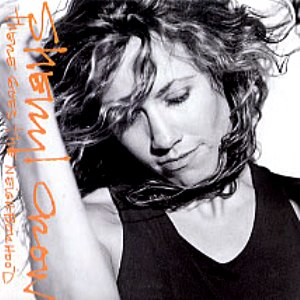
"There Goes the Neighborhood" is a song by American singer-songwriter Sheryl Crow. The song was released as the second single from her third studio album, The Globe Sessions (1998), on November 23, 1998, and won an award for Best Female Rock Vocal Performance at the 43rd Annual Grammy Awards in 2001.

"Everyday Is a Winding Road" is the second single from American singer and songwriter Sheryl Crow's 1996 eponymous album. Neil Finn, lead singer of Crowded House, provides backing vocals. Paul Hester, another member of Crowded House, was the inspiration for the song. The single was issued in the United Kingdom in November 1996 and was released in the United States the following year.

"This Kiss" is a song by American country music singer Faith Hill from her third studio album Faith. It was written by Beth Nielsen Chapman, Robin Lerner and Annie Roboff, and produced by Hill and Byron Gallimore. It was released on February 23, 1998, as the album's first single.
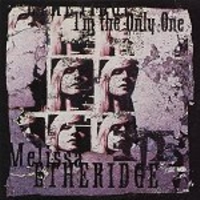
"I'm the Only One" is a song by American singer-songwriter Melissa Etheridge from her fourth studio album, Yes I Am (1993). It was released as the first single in September 1993, reaching No. 12 in Canada and No. 26 in the Netherlands. In the United States, it was slow to gain momentum, but after the success of "Come to My Window", it was re-released, peaking at No. 8 on the Billboard Hot 100 and No. 1 on the Billboard Adult Contemporary chart in January 1995. It remains Etheridge's biggest hit on either chart and earned her a nomination for the Grammy Award for Best Rock Song in 1995.

"Adia" is a song by Canadian singer Sarah McLachlan from her fourth studio album, Surfacing (1997). It was co-written by McLachlan and her longtime producer, Pierre Marchand. McLachlan has said about the song, "...more than anything, it's about my problems in dealing with feeling responsible for everyone else". "Adia" was released as the third North American single from Surfacing on 2 March 1998; in Europe, it served as McLachlan's debut single, receiving a UK release in September 1998.
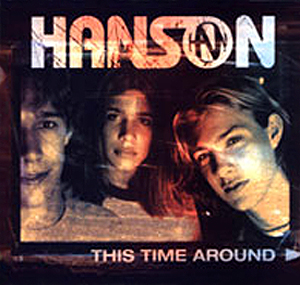
"This Time Around" is a song written and performed by American pop rock band Hanson. It was the title track and second single from the band's second studio album, This Time Around (2000). American singer Jonny Lang plays an electric guitar on the song. It was released as a commercial single in the United States and Canada on April 4, 2000.

"No Souvenirs" is a song by American singer-songwriter Melissa Etheridge, release as the second single from her second album, Brave and Crazy, in August 1989. Despite peaking at number 95 on the US Billboard Hot 100, the song experienced more success internationally, reaching number 30 in Australia and number four in Canada, where it became Etheridge's highest-charting single until "I Want to Come Over" reached number one in 1996.

"Bring Me Some Water" is the debut single of American singer Melissa Etheridge. It was released in 1988 and became a hit in several countries, reaching the top 20 in Australia, New Zealand, and on the US Billboard Album Rock Tracks chart.

"If I Wanted To" is a song by American singer-songwriter Melissa Etheridge, released in 1994 as the final single from her fourth studio album, Yes I Am (1993). The song entered the top 50 in Australia, Canada, Iceland, and the United States.
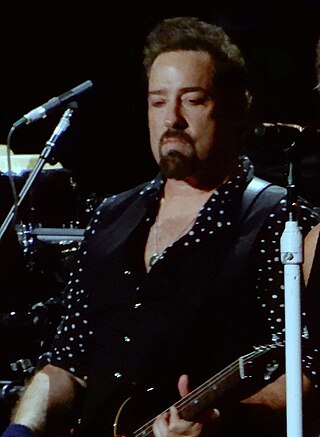
John Matthew Shanks is an American songwriter, record producer and guitarist.

"Your Little Secret" is the first single and title track from American singer-songwriter Melissa Etheridge's fifth studio album of the same name (1995). The song was released to US radio stations on October 9, 1995.

"I Want to Come Over" is a song by American singer-songwriter Melissa Etheridge. It was released in late January 1996 as the second single from her fifth studio album, Your Little Secret (1995). The song was a commercial success, reaching number 22 on the US Billboard Hot 100 and number 29 in both Australia and New Zealand. It also reached number one on the Canadian RPM 100 Hit Tracks chart in March 1996. At the end of the year, the song appeared on the American and Canadian year-end charts at numbers 79 and 11, respectively.
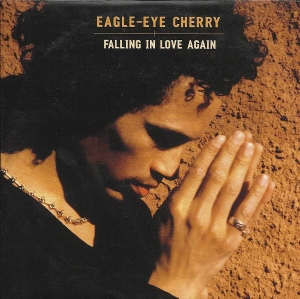
"Falling in Love Again" is the sixth track on Swedish singer Eagle-Eye Cherry's debut studio album, Desireless (1997). It was released as the album's third single in 1998 in Europe. Following the success of "Save Tonight", it was given a North American radio release in February 1999. The song reached number eight on the UK Singles Chart and peaked inside the top 50 in France, Iceland, and Ireland. Although the song charted in Canada and its music video received rotation on VH1, it did not appear on any US Billboard charts. The song's music video was directed by Stéphane Sednaoui.



















